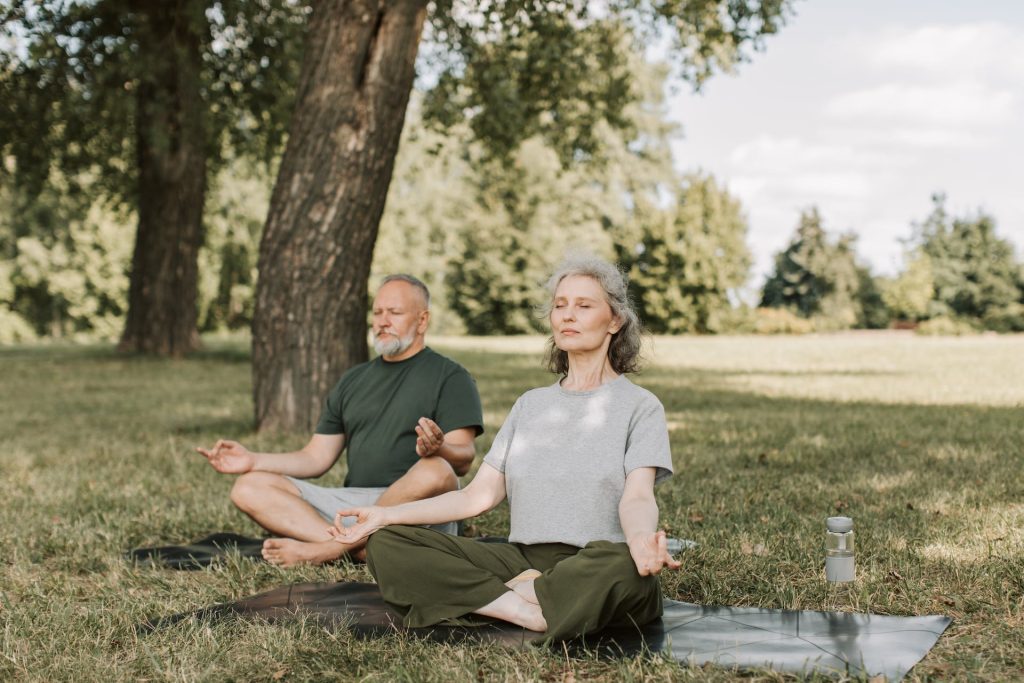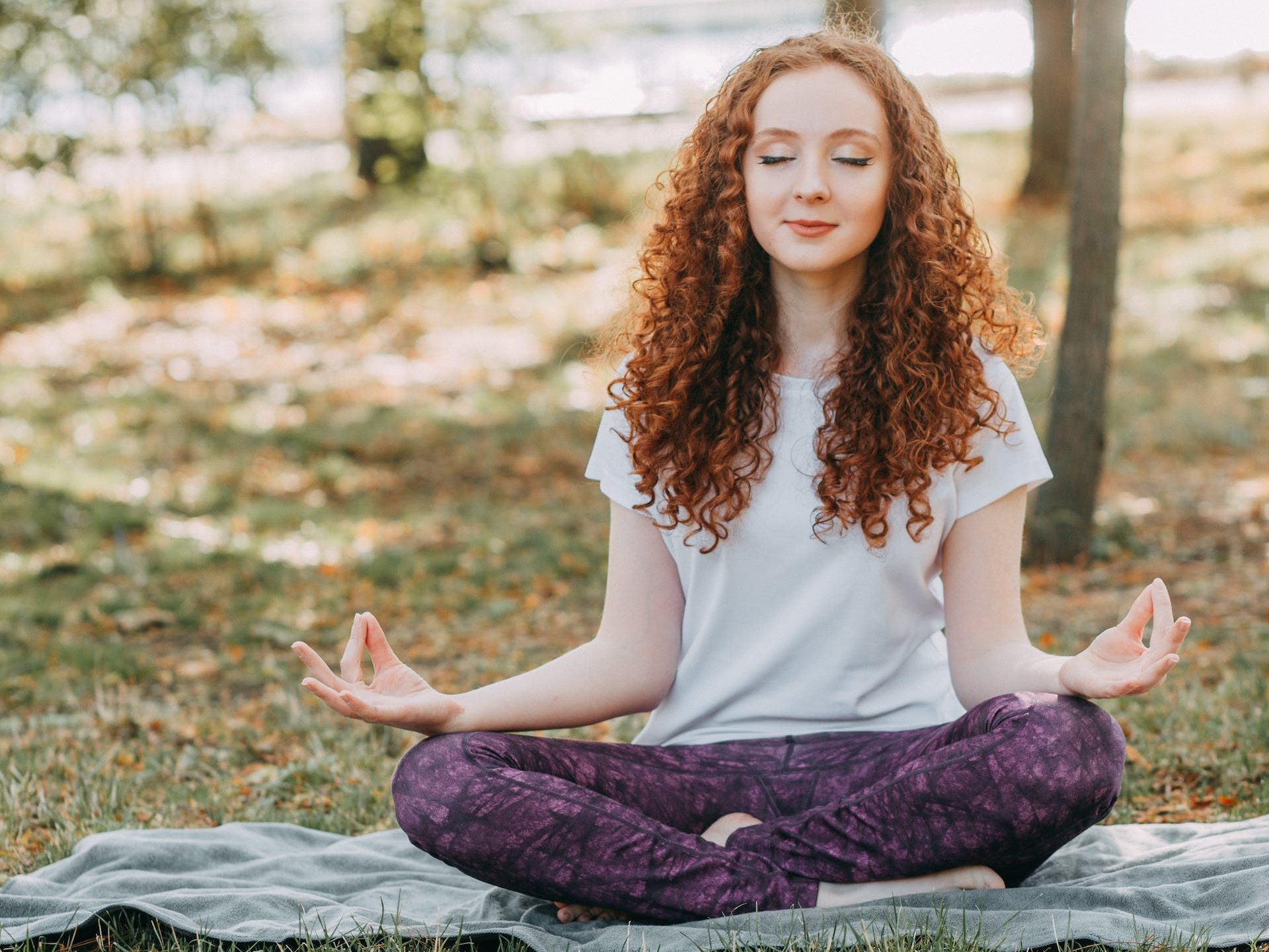
A guide to the benefits, techniques, and resources of meditation for anxiety relief
Have you ever felt overwhelmed by stress and anxiety? Do you wish you could find a way to calm your mind and relax your body? If so, you might want to try meditation for anxiety relief.
Meditation is a practice that involves focusing your mind on a particular thought, object, or activity, such as your breathing, a mantra, or a candle flame. Meditation can help you calm down, increase your self-awareness, and manage your emotions and thoughts. Many people practice meditation to cope with stress and anxiety, and there is scientific evidence to support its effectiveness.
In this guide, you will learn:
- What is meditation and how does it work?
- How meditation affects your brain and reduces anxiety
- How to start meditating for anxiety
Let’s get started!
What is meditation and how does it work?

Meditation is a mental exercise that trains your attention and awareness. It can be done in different ways, depending on your preference and goal. Some common types of meditation are:
- Mindfulness meditation: This is a type of meditation that involves paying attention to the present moment without judgment. You observe your thoughts, feelings, and sensations as they arise and pass away, without trying to change or control them. You can practice mindfulness meditation by focusing on your breath, your body, or your surroundings.
- Focused attention meditation: This is a type of meditation that involves concentrating on a single object, such as your breath, a mantra, or a sound. You keep your attention on the object and bring it back whenever it wanders. This helps you train your concentration and calm your mind from distractions and worries.
- Open monitoring meditation: This is a type of meditation that involves observing your thoughts, feelings, and sensations without judging or reacting to them. You do not focus on any specific object, but rather on the flow of your experience. This helps you develop your awareness and acceptance of your present moment experience.
Meditation works by changing the way your brain functions and processes information. It can enhance your cognitive, emotional, and social skills, as well as your physical health. Some of the benefits of meditation are:
- It lowers your heart rate and blood pressure
- It reduces the production of stress hormones
- It increases the release of endorphins and serotonin
- It enhances your immune system and your resilience
- It improves your mood and your self-esteem
- It boosts your creativity and your problem-solving skills
How meditation affects your brain and reduces anxiety

Anxiety is a natural and normal response to perceived threats or challenges. It can help you prepare for action and cope with difficult situations. However, when anxiety becomes excessive, persistent, or irrational, it can interfere with your daily life and well-being.
Anxiety is associated with changes in your brain structure and activity. Some of the brain regions that are involved in anxiety are:
- The amygdala: This is a part of the brain that is responsible for processing emotions, especially fear and anger. It alerts you to potential dangers and triggers the fight-or-flight response. When you are anxious, your amygdala becomes overactive and sends signals to other parts of the brain, causing physical and psychological symptoms of anxiety.
- The prefrontal cortex: This is a part of the brain that is responsible for planning, decision-making, and rational thinking. It helps you evaluate situations and control your impulses and emotions. When you are anxious, your prefrontal cortex becomes underactive and impairs your ability to think clearly and calmly.
- The hippocampus: This is a part of the brain that is responsible for memory and learning. It helps you store and retrieve information and form new associations. When you are anxious, your hippocampus becomes smaller and less effective, affecting your memory and learning abilities.
- Meditation can reverse these changes and reduce anxiety in various ways. Some of the ways that meditation affects your brain and reduces anxiety are:
- It increases the activity of the prefrontal cortex and the hippocampus, improving your cognitive and emotional regulation.
- It decreases the activity of the amygdala, reducing your fear and stress response.
- It increases the connectivity between the prefrontal cortex and the amygdala, enhancing your ability to cope with negative emotions and situations.
- It increases the gray matter in the brain regions related to learning, memory, and emotion regulation, and decreases the gray matter in the brain regions related to stress, fear, and anxiety.
According to the World Health Organization (WHO), anxiety disorders are the most common mental health problem in the world, affecting more than 260 million people.
A study by Harvard University found that meditation can change the structure of your brain in as little as 8 weeks, increasing the gray matter in areas related to learning, memory, and emotion regulation, and decreasing the gray matter in areas related to stress, fear, and anxiety.
How to start meditating for anxiety

If you want to try meditation for anxiety relief, you don’t need to be an expert or spend hours sitting in silence. You can start with a few simple steps and gradually increase your practice as you feel more comfortable. Here are some tips on how to start meditating for anxiety:
- Find a quiet and comfortable place to meditate, where you won’t be disturbed or distracted. You can meditate in your bedroom, your living room, your garden, or any place that makes you feel relaxed and safe.
- Choose a time of day that works best for you, such as in the morning or before bed. You can also meditate whenever you feel anxious or stressed, as a way to calm yourself down and regain your balance.
- Start with a short duration, such as 5 minutes, and gradually increase it as you feel more comfortable. You can use a timer or an app to keep track of your time and avoid checking your phone or clock.
- Use an app, a video, or an audio guide to help you follow a meditation technique, or join a class or a group if you prefer. There are many resources available online and offline that can teach you different types of meditation and guide you through the process. You can also meditate on your own, by following your breath, your body, or your thoughts.
- Be gentle and patient with yourself, and don’t worry about doing it perfectly. It’s normal to have thoughts and feelings during meditation, just acknowledge them and let them go. Don’t judge yourself or your performance, but rather appreciate your effort and your progress.
- Practice regularly and consistently, and notice how you feel after each session. Meditation is a skill that requires practice and dedication, but it can also be enjoyable and rewarding. Try to make meditation a part of your daily routine, and observe the changes in your mood, your mind, and your body.
I hope this guide has helped you understand how meditation can help you overcome anxiety and how to start meditating for anxiety relief.





